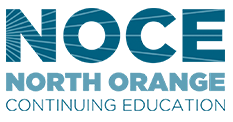
Financial aid (may be available)

Financial aid (may be available)

No cost info

Financial aid (may be available)
No cost info

$220 to start
$440 total

No cost info
$3,550 total
Financial aid (may be available)
OPTI Medical Systems supports the Online Quality Assurance Program (QAP) to add value to your OPTI CCA-TS2 analyzer. Online QAP facilitates the evaluation of quality control (QC) data with that of your peers for trends and shifts. Do not miss out on these valuable services that OPTI Medical provides OPTI analyzer users at no additional charge.
No cost info
The Graduate Certificate in Quality Assurance Compliance provides an in-depth knowledge of the global regulatory and compliance requirements for the development, marketing approval, and clinical utilization of biomedical products in today’s dynamic global healthcare environment.
No cost info
This program is designed for the chemist, bio-chemist or biologist in the pharmaceutical and biologic industry new to quality assurance and control, and is beneficial to senior year undergraduates and graduate students (using concurrent enrollment) interested in a career in QA/QC.
The program focuses on the quality requirements for the production and control of biologics and drugs, and the differences between quality control and quality assurance and their interaction with manufacturing. It highlights the importance of implementing and maintaining a quality system during the early stages of drug development, including the plethora of documents and controls necessary to make such a system effective. Guidelines and regulations from the FDA and the California State food and drug branch regulate the production of drug products. Quality Assurance (QA) monitors the manufacturer's compliance to these guidelines and regulations.
Instruction covers how to write, issue and control SOPs; manufacturing directions; and how to review and archive a batch history and other relevant documents. Emphasis is placed on conducting inspections and vendor audits for compliance to cGMPs to include contract manufacturers, bulk pharmaceutical chemical manufacturers and contract test laboratories. The program covers cGLPs and their applications to audits of facilities that provide toxicological services. Details on compiling, writing and archiving audit reports is provided.
No cost info
Quality assurance training helps applicants for understanding the basic concepts of information technology and software testing which help them excel as Quality Assurance (QA) specialists. The quality assurance course also covers physical products in determining defects in manufactured products and preventing them, pre-production, SDLC-Software Development Life Cycle, Production Environment vs Sandbox Environment, Mantis Bug Tracker, and many more. During the QA online training, you will learn how to decode the application of dynamic and static techniques, conduct walk-thoughts and audits, create a quality analysis, perform boundary value analysis, and test plan hands-on through this Quality assurance certification training.
No cost info
Mount St. Mary’s University is home to Maryland’s only certificate in quality assurance and regulatory science (QA/RS). The fully online program prepares you to lead your company through the efficient delivery of high-quality products within a competitive market.
No cost info
Are you looking to start a career in Quality Assurance? Quality Assurance is a vital part of many industries, ensuring that products and services meet the highest standards of quality. If you're interested in becoming a Quality Assurance professional, taking quality assurance classes can be a great way to gain the necessary skills and knowledge. In this blog post, we will discuss what Quality Assurance is, the training requirements, what to look for in a class, what to expect from the day-to-day class, the certification process, how to find related jobs, and other classes you can take after becoming a Quality Assurance professional.

Quality Assurance (QA) is the process of ensuring that products, services, and processes meet the established standards and requirements. It involves monitoring and evaluating various aspects of a product or service to identify any defects or deviations from the desired quality. QA professionals play a crucial role in maintaining the quality and integrity of products and services across industries such as manufacturing, healthcare, IT, and more.
Quality Assurance is a systematic approach to prevent defects, errors, and deviations in products and services. It involves establishing quality standards, implementing quality control measures, and continuously monitoring and improving processes to ensure that the desired level of quality is achieved.
To become a Quality Assurance professional, it is essential to have the necessary training and skills. While there is no specific educational requirement for entry-level QA positions, most employers prefer candidates with a high school diploma or equivalent. However, having a bachelor's degree in a related field such as engineering or quality management can enhance your job prospects.
When searching for Quality Assurance classes near you, there are a few factors to consider to ensure you find the right program for your needs:
Accreditation: Look for classes offered by accredited institutions or training providers. Accreditation ensures that the program meets certain standards of quality and is recognized by employers.
Curriculum: Review the curriculum to ensure that the class covers all the essential topics and skills required for a career in Quality Assurance. Look for classes that offer a comprehensive understanding of quality control techniques, quality management systems, and industry-specific regulations.
Hands-on Experience: Practical experience is crucial in Quality Assurance. Look for classes that provide opportunities for hands-on learning, such as lab exercises, case studies, or internships. Practical experience will help you apply the concepts learned in the class to real-world scenarios.
Qualified Instructors: The expertise and experience of the instructors can greatly impact the quality of your learning experience. Look for classes taught by qualified instructors who have industry experience in Quality Assurance.
Quality Assurance classes typically cover a range of topics to provide students with a comprehensive understanding of the field. Here are some of the key areas that may be covered in a Quality Assurance class:
Introduction to Quality Assurance: An overview of the principles, concepts, and importance of Quality Assurance.
Quality Control Techniques: Learning various techniques and tools used to monitor and control the quality of products and services.
Quality Management Systems: Understanding the different quality management systems and their implementation in different industries.
Statistical Process Control: Learning statistical techniques used to monitor and control processes to ensure consistent quality.
Root Cause Analysis: Understanding how to identify and address the root causes of quality issues.
Auditing and Compliance: Learning about auditing techniques and compliance with industry standards and regulations.
Documentation and Reporting: Understanding the importance of documentation and reporting in Quality Assurance processes.
While certification is not always a requirement for entry-level positions in Quality Assurance, it can enhance your job prospects and demonstrate your commitment to the field. There are several certifications available for Quality Assurance professionals, such as:
Certified Quality Auditor (CQA): Offered by the American Society for Quality (ASQ), this certification validates your knowledge and skills in auditing quality systems.
Certified Quality Technician (CQT): Also offered by ASQ, this certification validates your knowledge of quality control techniques and the ability to apply them.
Certified Quality Engineer (CQE): This certification is for professionals who have a comprehensive understanding of quality engineering principles and practices.
The certification process typically involves meeting certain eligibility requirements, passing an exam, and maintaining the certification through continuing education or recertification.
After completing your Quality Assurance classes and obtaining the necessary certifications, you'll be ready to start your career in Quality Assurance. Here are some ways to find related job opportunities:
Job Boards: Utilize online job boards to search for Quality Assurance positions in your area. Popular job boards include Indeed, LinkedIn, and Glassdoor.
Networking: Attend industry events, join professional associations, and connect with professionals in the field. Networking can often lead to hidden job opportunities.
Company Websites: Many companies post job openings on their websites. Research companies in your area that have a focus on quality and check their career pages regularly.
Once you have established yourself in the field of Quality Assurance, there are several other classes you can take to further enhance your skills and knowledge. Some popular options include:
Six Sigma: Six Sigma is a methodology used to improve processes and reduce defects. Taking Six Sigma classes can provide you with valuable skills in process improvement and data analysis.
Lean Manufacturing: Lean Manufacturing focuses on eliminating waste and improving efficiency in manufacturing processes. This class can help you understand lean principles and apply them to your work.
ISO Standards: ISO standards are widely recognized quality management standards. Taking classes on ISO standards can help you become an expert in implementing and maintaining these standards.
Quality Assurance is a rewarding career path that offers a wide range of opportunities across industries. By taking Quality Assurance classes and obtaining the necessary certifications, you can position yourself for a successful career in this field. Remember to consider factors such as accreditation, curriculum, hands-on experience, and qualified instructors when choosing a class. And don't forget to utilize resources like Dreambound to find related job opportunities and explore other classes that can further enhance your skills. Good luck on your journey to becoming a Quality Assurance professional!
Dreambound has written dozens of in-depth guides on how to get started in this field, with information specific to your city. If you're located somewhere else or thinking about moving, check out some other guides we've written:
Contemplating a change in your career path? Dreambound has written many comprehensive guides to aid you in making well-informed decisions.
Dreambound's platform allows prospective students to find the right educational program for them through searching, filtering, and connecting with our extensive selection of career & technical education partners.
Dreambound has over 70 programs across healthcare, technology, business, and industrial trades. This includes programs such as Medical Billing, Cybersecurity, and welding.
Some of our schools offer financial aid for those who qualify. Many others offer payment plans, where you can pay the cost of class over time.
Yes, Dreambound offers many online programs. On Dreambound's search, you can filter by online, in-person, and hybrid (part online, part in-person).
Dreambound is completely free for you to use! We are supported by schools and organizations who pay to advertise on our website, so we can offer all of our career resources for free.